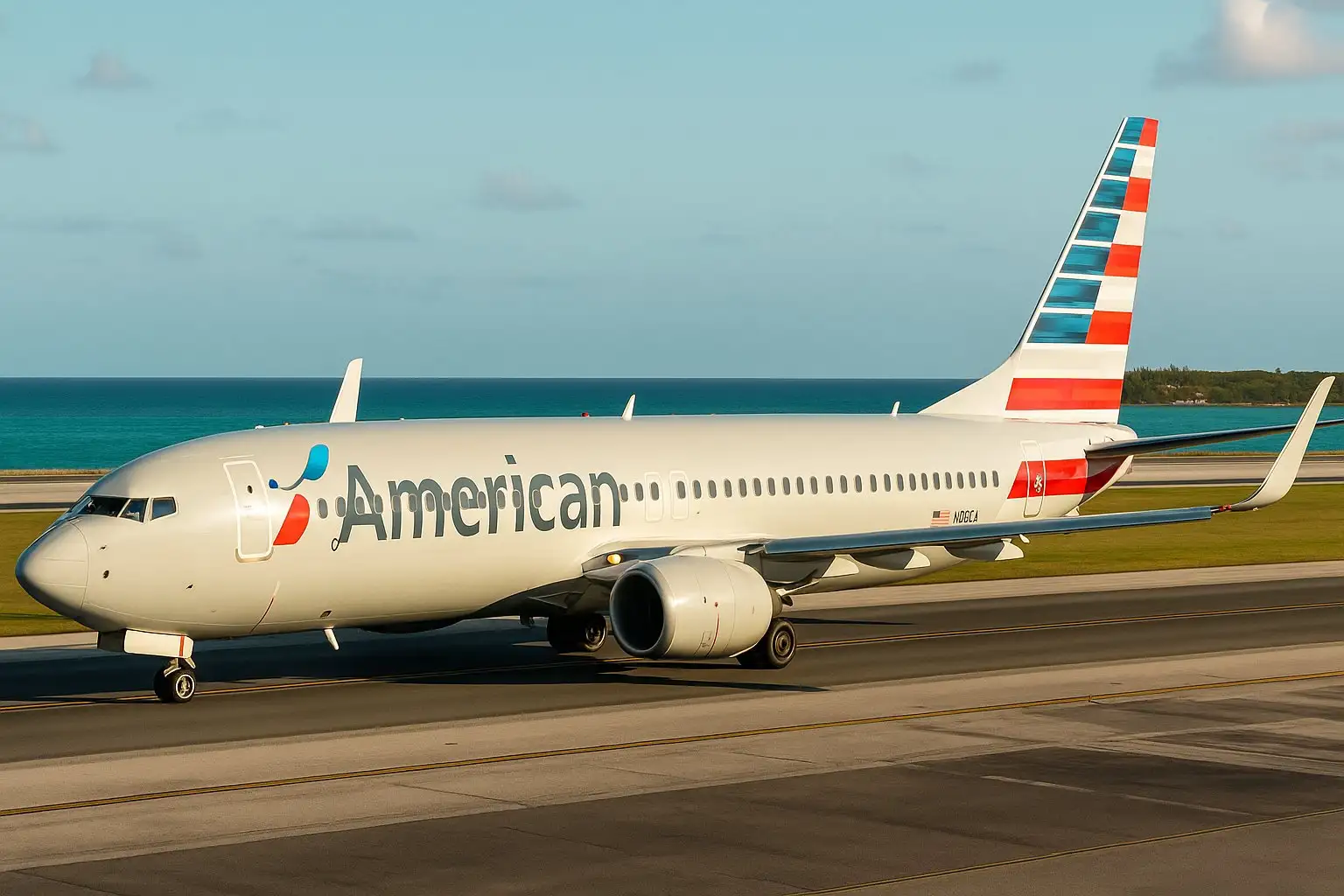
American Airlines has officially expanded its Caribbean network by introducing nonstop Miami to Bimini flights, a move welcomed by both frequent travelers and tourism officials. The new service, launched this week, strengthens Miami International Airport’s role as a primary gateway to the Caribbean and gives South Florida residents and international travelers a seamless way to reach one of the Bahamas’ most alluring islands.
The nonstop Miami to Bimini flights represent a strategic addition at a time when tourism demand is rebounding sharply across the region. Bimini, known for its turquoise waters, vibrant coral reefs, and historical significance, has long attracted boaters and private charter flyers. However, the lack of consistent, large-scale commercial air service limited access for many would-be visitors. With American Airlines now operating direct flights, the destination is no longer a hidden gem but a conveniently reachable weekend escape.
Local tourism officials are already celebrating. The Bahamas Ministry of Tourism issued a statement noting that easier connectivity is key to boosting the local economy. Hotels, guesthouses, and casinos on the island anticipate higher occupancy rates, particularly during peak travel seasons. The nonstop Miami to Bimini flights are expected to attract both Floridians seeking quick getaways and international travelers using Miami as a connecting hub. Miami International Airport executives echoed this optimism, describing the new service as part of a broader push to enhance connectivity between South Florida and key Caribbean markets.
Travel agencies across Miami have reported a surge of interest in the route, particularly among young professionals and families looking for short, stress-free vacations. The convenience of avoiding layovers makes Bimini more appealing than ever before. Industry insiders explain that nonstop routes often outperform expectations when they serve both leisure and business purposes. In Bimini’s case, the leisure market dominates, but opportunities for meetings, incentives, and events are also emerging as resorts look to diversify.
Passengers on the inaugural nonstop Miami to Bimini flights described the journey as “seamless and quick.” At just under 40 minutes, the route is shorter than many daily commutes across Miami-Dade. Travelers said they were impressed not only by the speed of the flight but also by the ease of connecting from other U.S. and international cities via Miami. With American Airlines’ expansive network, passengers from New York, Chicago, or even Los Angeles can now reach Bimini with a single connection.
Economically, the implications are significant. For Bimini, tourism accounts for the majority of local revenue, and expanded access typically translates to more jobs and greater investment. For Miami, the nonstop service reinforces the city’s reputation as the premier departure point for Caribbean tourism. Airlines benefit by capturing pent-up demand, while local businesses—from travel agencies to luggage retailers—see indirect gains. Aviation experts point out that adding routes like the nonstop Miami to Bimini flights also helps maintain American Airlines’ competitive edge against low-cost carriers expanding aggressively in the region.
The cultural impact is also noteworthy. Bimini holds a unique place in Bahamian and American history. Ernest Hemingway once called the island home, drawing inspiration for his writing from its fishing culture. Martin Luther King Jr. is believed to have drafted portions of his Nobel Prize acceptance speech while visiting. These stories, paired with the natural beauty of the island, enhance its appeal to travelers seeking more than just beaches.
Environmental advocates, however, caution that with increased accessibility comes increased responsibility. Bimini’s fragile ecosystems, including mangroves and coral reefs, face growing threats from climate change and development pressures. Sustainable tourism practices will be critical to ensuring that the influx of visitors brought by the nonstop Miami to Bimini flights does not overwhelm local resources. The Bahamas government has reiterated its commitment to balancing economic growth with conservation efforts, including stricter guidelines on resort expansions and eco-tourism initiatives.
From a traveler’s perspective, the new route offers unprecedented convenience. Miami residents can now leave the city in the morning and be on the beaches of Bimini before lunchtime, making same-day trips entirely feasible. For visitors arriving in Miami from Europe or Latin America, the nonstop Miami to Bimini flights offer a hassle-free extension to their journey. Travel influencers and bloggers are already spotlighting the route on social media, sharing images of Bimini’s white sands and crystal-clear waters, further amplifying excitement.
Industry analysts predict that the success of this route could pave the way for additional Caribbean connections out of Miami. Markets like Abaco, Exuma, and Eleuthera are often mentioned as potential candidates for future nonstop service. If the Miami-Bimini route achieves strong load factors, it will serve as a blueprint for expanding direct connectivity to other nearby destinations.
In the broader aviation context, the launch of nonstop Miami to Bimini flights aligns with a trend toward shorter, high-frequency regional routes. Airlines see these as efficient ways to meet evolving traveler preferences, particularly in a post-pandemic world where direct flights are valued more than ever. The Miami-Bimini route encapsulates that shift perfectly: short, simple, and strategically beneficial.
Ultimately, this development underscores Miami’s role as a linchpin in Caribbean tourism. The city continues to bridge cultures, economies, and leisure markets through aviation, and the nonstop Miami to Bimini flights are the latest example of that dynamic. For travelers, the change is immediate and tangible. For Miami and Bimini, the long-term potential lies in deeper economic and cultural ties nurtured through easier access. The route’s success will be measured not just in ticket sales, but in the shared prosperity it fosters across borders.